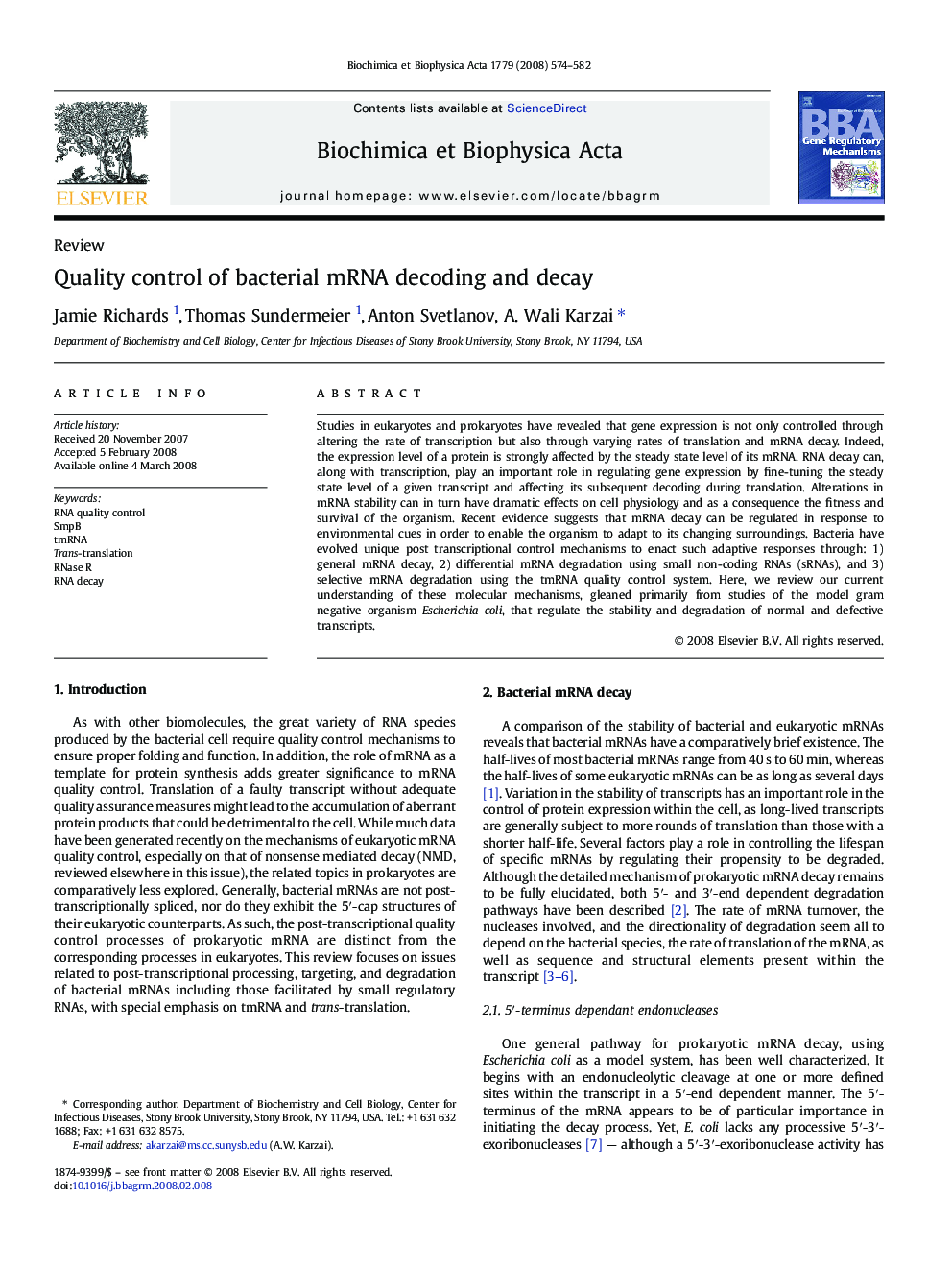| Article ID | Journal | Published Year | Pages | File Type |
|---|---|---|---|---|
| 1947055 | Biochimica et Biophysica Acta (BBA) - Gene Regulatory Mechanisms | 2008 | 9 Pages |
Studies in eukaryotes and prokaryotes have revealed that gene expression is not only controlled through altering the rate of transcription but also through varying rates of translation and mRNA decay. Indeed, the expression level of a protein is strongly affected by the steady state level of its mRNA. RNA decay can, along with transcription, play an important role in regulating gene expression by fine-tuning the steady state level of a given transcript and affecting its subsequent decoding during translation. Alterations in mRNA stability can in turn have dramatic effects on cell physiology and as a consequence the fitness and survival of the organism. Recent evidence suggests that mRNA decay can be regulated in response to environmental cues in order to enable the organism to adapt to its changing surroundings. Bacteria have evolved unique post transcriptional control mechanisms to enact such adaptive responses through: 1) general mRNA decay, 2) differential mRNA degradation using small non-coding RNAs (sRNAs), and 3) selective mRNA degradation using the tmRNA quality control system. Here, we review our current understanding of these molecular mechanisms, gleaned primarily from studies of the model gram negative organism Escherichia coli, that regulate the stability and degradation of normal and defective transcripts.
